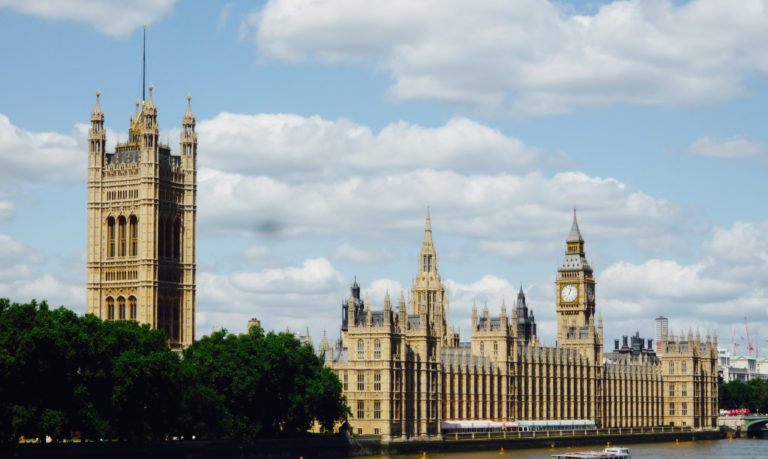With online voting opening today to replace the incumbent Lord Fowler, members of the House of Lords will elect the fourth Lord Speaker, the presiding officer, chairman and highest authority in the House of Lords.
Until July 2006, the role of presiding officer in the House of Lords was undertaken by the Lord Chancellor, currently Robert Buckland, joint with his role as Secretary of State for Justice. Under the Constitutional Reform Act 2005, the position of the Speaker of the House of Lords became a separate office and the first into the role was Labour’s Baroness Hayman.
The Lord Speaker has assumed most of the duties that the Lord Chancellor used to have in relation to his parliamentary role, however, the Lord Chancellor continues to hand the speech to the Queen during the State Opening of Parliament, in an act of representing Government. Like the Speaker of the House of Commons, but unlike the Lord Chancellor, the Lord Speaker is expected to remain non-partisan whilst in office. On election, the Lord Speaker resigns the party whip or crossbench group to concentrate on being an impartial presiding officer.
The main functions of the Lord Speaker are presiding over business in the Lords chamber; chairing the House of Lords Commission, which provides high-level strategic and political direction for the House of Lords Administration on behalf of the House; taking formal responsibility for security in the Lords area of the parliamentary estate; coordinating an engagement programme to engage the public in the work and role of the Lords, central to which is the House of Lords Engagement Programme; attending and speaking at state and ceremonial occasions on behalf of the Lords; and representing the Lords to overseas parliaments, attending conferences with speakers of other parliaments, sharing best practice and developing links between parliaments. The role has less power than the Speaker of the House of Commons and given that the Lords is largely self-governing, its presiding officer has traditionally taken a less active role in debates than the Speaker of the House of Commons.
The election for the next Lord Speaker has three main candidates:
- Lord Alderdice: A Liberal Democrat, Alderdice would prioritise “major challenges” of Restoration and Renewal, the External Management Review, and the Ellenbogen Report. He would also undertake a wider programme of engagement with the public and Devolved Administrations to project the importance of the House of Lords. He was a former Speaker of the Northern Ireland Assembly and former leader of the Alliance Party.
- Baroness Hayter of Kentish Town: The Labour candidate, Baroness Hayter calls for a “Two Houses; One Parliament” approach ensuring the Lords is adaptable, strengthened and championed, and aims to be an ambassador for the House and Parliament. She wants to be described as “a House of Experts” rather than “the unelected House”. She is a former Labour Party Chairman and former Director of Alcohol Concern. She is currently Deputy leader of Labour in the Lords and a member of Labour Friends of Israel.
- Lord McFall of Alcluith: Currently non-affiliated and Senior Deputy Speaker of the House of Lords, his vision is for a vibrant second chamber which is open, transparent and engages with the wider public, remaining on the path of reform and modernisation, respecting the Burns Report. He sees the Lords’ Committee work in particular, forming the basis of the ‘national conversation’ in the aftermath of the pandemic and sees a role in defending and promoting the Union. A former Labour MP, the Scotsman is currently Chair of the Scotch Whisky and Spirits APPG and the Royal Navy APPG.
The House of Lords is still highly influential in decision making. Peers have much more freedom to table amendments to legislation than their counterparts in the Commons who are often bound to Whips. Tabling ‘probing amendments’ can test out ministerial thinking and can often secure significant compromises and pledges which are just as binding as if made in the Commons. They get as much access to Ministers as their Commons counterparts and are influential in many pressing political issues, most recently and notably the Domestic Abuse Bill. It now includes a range of amendments from the Lords which will now be voted on in the Commons, such as Baroness Royall’s amendment to add domestic abusers to the sex offenders register, amendments on the protection of migrants and including carers within the scope of the Bill.
The election of the next Lord Speaker will also influence how reforms to the upper chamber are handled. Baroness Hayter, who along with Lord Alderdice and Lord McFall of Alcluith said that hereditary peers were “not something that would be accepted by the British public today”.
Hayter said by-elections, the process by which the hereditaries replenish their numbers whenever a member dies or retires, were “wrong”. As it stands, the contests have been stopped temporarily because of the pandemic and Hayter said the House should vote on whether to resume them at all. Alderdice called for their permanent suspension, saying hereditary peers should be allowed to “wither away”. McFall said he “admired” the work of those advocating reform and the by-elections had become “absurd”.
All three candidates for Lord Speaker have urged Boris Johnson to accelerate reforms, saying it was up to the government to restore trust in politics by modernising the chamber. Its clear that each candidate will bring their own strategy to the table in regard to reform, which will come at a critical time in British politics.
The deadline for online voting is this Thursday, 15th April, and it is expected the announcement of the election will be Wednesday 21st April. Saturday 1st May will see the new Lord Speaker take Office and on 4th May, they are expected to sit on the Woolsack for the first time at the start of business.




